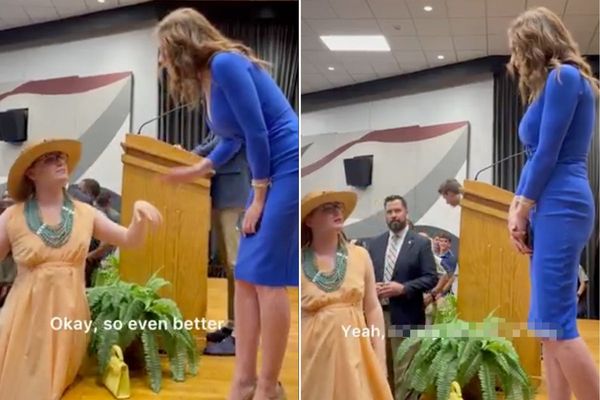Prime Minister Anthony Albanese has remembered Aboriginal land rights champion Yunupingu as a visionary who walked in two worlds with "authority, power and grace".
Aboriginal and Torres Strait Islander readers are advised that the following story contains images of people who have died.
Hundreds of mourners have travelled to the tiny island of Gunyangara in the Northern Territory to honour Yunupingu at a public memorial.
Dozens of political leaders and dignitaries attended the public memorial along with the prime minister, including Minister for Indigenous Australians Linda Burney, Northern Territory Chief Minister Natasha Fyles and Opposition Leader Peter Dutton.
A father, musician, former Australian of the Year and political pioneer who fought for the rights of First Nation Australians, Yunupingu died on his country in Arnhem Land in April at age 74.
The public memorial began at 1:30pm local time, and marks just one event across a multi-day ceremony led by Yolngu clan leaders.
"It’s often said that we stand on the shoulders of giants. Yunupingu was a giant who made sure we could," Mr Albanese said.
"He had every right to be cynical, but he wasn’t. No matter how often Australia let him down, he kept striving to have us rise to his level of integrity.
"Now he walks in another place, but he has left such great footsteps for us to follow here in this one."
Mr Dutton, joining the prime minister in paying his respects, said Yunupingu was a "pioneer who changed our nation".
"He's rightly been described as 'a giant', as 'a titan' and as 'a national treasure'," he said.
His eldest daughter, Binmila Yunupingu, welcomed the mourners in her tribute and said he would be remembered for his "fierce leadership" and empowering Aboriginal people throughout Australia.
"He foresaw the future. It wasn't like a prediction. That's why he was called Djengarra. Djengarra means precision, clarity, forward thinking with a laser-sharp beam," she said.
"In leaving us, we know that dad's loss will be felt in many hearts and minds. We ask you to mourn his passing in your own way, but we as a family encourage you to rejoice in the gift of his life and leadership."
Australian actor Jack Thompson, a long-time friend of Yunupingu, said Yunupingu's work was far from over, and that the challenges he faced in giving a voice to the powerless were "our challenges now".
"He found the respect of all he met through his authority and poise. But it was his determination to do things that needed to be done, and that were right, that spoke to his allies and his opponents alike," he said.
Funeral ceremonies in the Northern Territory's Indigenous communities are often spoken about, but rarely seen by outsiders.
The burial of Yunupingu will take place on Wednesday, May 24, and will be a private occasion for family only.
From carving out historic mining agreements to forging shifts in land rights, over the decades Yunupingu was called on for advice on Aboriginal affairs in the boardrooms of Prime Ministers on both sides.
Born in 1948, following in the footsteps of powerful family roots, a path of leadership appeared set in stone from his earliest years and continued until his last days.
In 1978, he was named Australian of the Year, and in 2019 he was appointed to advise on the Voice to Parliament.
Most recently, he met Prime Minister Anthony Albanese at Garma festival in 2022.
Yunupingu was the chair of the powerful Northern Land Council for a quarter of a century.
The council's current chair Dr Samuel Bush-Blanasi, who was unable to attend the memorial, said Yunupingu was "a man of great vision".
"The Northern Land Council owes Yunupingu a debt that can never be repaid," he said.
"We will continue what he started and always honour his memory and his historic achievements."
Deputy Chief Minister Nicole Manison said it is a "great time of sadness", but also a time to reflect on Yunupingu's immense achievements in creating a fairer world.
"It's hard to put into words the extraordinary grief we feel here in the Northern Territory at this loss for someone who has made such a huge impact," she said.
"But it's also a time to think very deeply about what we should learn moving forward about how we can … make sure there is a better future for our first nations people."







